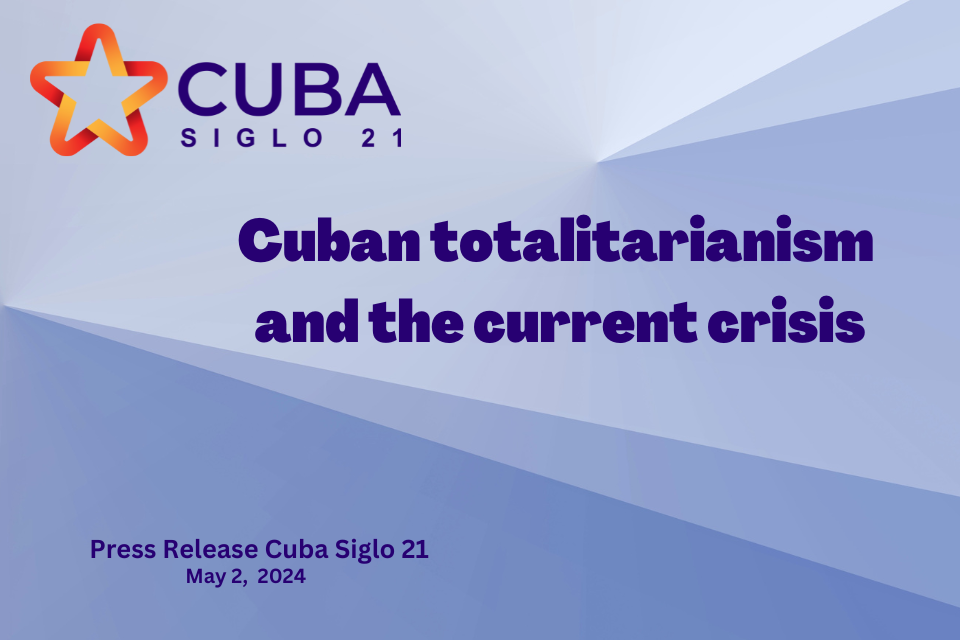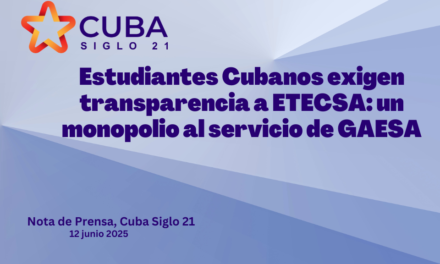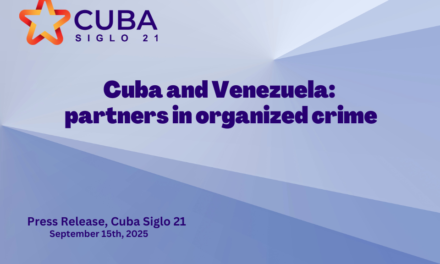Descargar Dossier completo español
Download Complete Report in English
Two recent reports by Cuba Siglo 21 – “Cuba: totalitarianism and Haitianization” and “Totalitarianism in Cuba” – expose the impact of totalitarianism on Cuban society. The second report analyzes three features that have characterized the totalitarian system on the island: the annihilation of private property, corruption and exodus.
The author considers that the nationalization of property by suppressing the freedom of enterprise and the market is the key element that in the end – in the absence of a foreign patron to finance its shortcomings – has led to the multi-systemic crisis that has pushed more than 80% of the population into extreme poverty.
The study gives a brief account of how the Cuban government in the second half of the 20th century seized the country’s wealth beginning in May 1959, when, with the First Agrarian Reform, 40% of the confiscated land did not pass into the hands of the peasants but into the hands of the State. By 1975, the state-owned large estates covered 75% of the best arable land in the country. Something similar happened with the private companies. In 1960, 381 large industrial and commercial enterprises were expropriated, a process that ended in 1968 with the annihilation of more than 55,000 small and medium-sized enterprises that were still in the hands of Cubans.
The consequences are clearly visible. Cuba went from being one of the countries with the highest standard of living in Latin America to one of the poorest. Hence, the author defines in his other report that in the year 2024 Cuba’s situation will be closer to that of Haiti: the most backward country in the Western Hemisphere. A historical setback that the author has called Haitianization.
The author attributes the origin of this Haitianization to the fact that the revolutionary government dismantled civil society, eradicated private property, suppressed liberties, and implemented a totalitarian system with which the citizen, an active and essential agent for social progress, disappeared.
The inefficiency of the centralized economy was recognized in 2018 by the Comptroller of the Republic: of 402 companies checked 39% were assessed as bad and 19% as deficient, with losses of more than 2 billion pesos, double that detected the previous year, when 369 companies showed losses of 1,057 million.
The report includes a chronology that traced back corruption scandals beginning in 1987 with the president of the Civil Aeronautics Institute, Luis Orlando Domínguez Muñiz – who had served as secretary of the Union of Young Communists and was a member of the Central Committee of the Communist Party (PCC).
All efforts to control corruption have been unsuccessful. But corruption went to a higher scale when in the first decades of the 21st century the communist regime, as happened in Venezuela, Russia and other countries in the world, was transformed into a mafia state controlled by an oligarchy.
In this new context, the Office of the Comptroller of the Republic is an entelechy with no real power to inspect the economy in the hands of the main embezzler of national wealth, which is the new oligarchy. Its main spawn, the military conglomerate (holding) GAESA, cannot be audited and operates behind the back not only of the Comptroller’s Office itself, but of any other state institution and -what is worse- at the margins and against the interests of the people.
The solution to the current crisis must start from the recognition of the totalitarian state as the main cause of widespread corruption, reestablish civil liberties, decentralize the economy, and allow the formation of a productive national class.
As for the exodus, the author states that its main cause is internal. It began before the administrations of Joe Biden, Donald Trump, and Barack Obama; before the “reformist” measures implemented by Raul Castro in 2008, before the 1966 Adjustment Act, and even before the rupture of diplomatic relations in 1961. The exodus will continue because it is impossible to stop it without cutting its root: the totalitarian model and the chronic and massive poverty it has generated.
The collapse of the Cuban totalitarian system is a fact. The attempt to solve the Cuban crisis through changes of officials or any other cosmetic change is insufficient. The experience of the last century shows that, in Cuba, due to its history, its culture and its current state, any solution to the current crisis requires structural changes.
What is debatable is, in any case, the way (peaceful or violent) in which it will inevitably move towards another system and whether the emerging society will still be autocratic (although no longer totalitarian) or eventually democratic. The author is encouraged by the recently born social movement for the “5 Freedoms against Totalitarianism“, which proposes a path to change through the reestablishment of basic freedoms that are essential to ensure that such change will be genuine and will point towards a democratic society, with the rule of law and a market economy.







